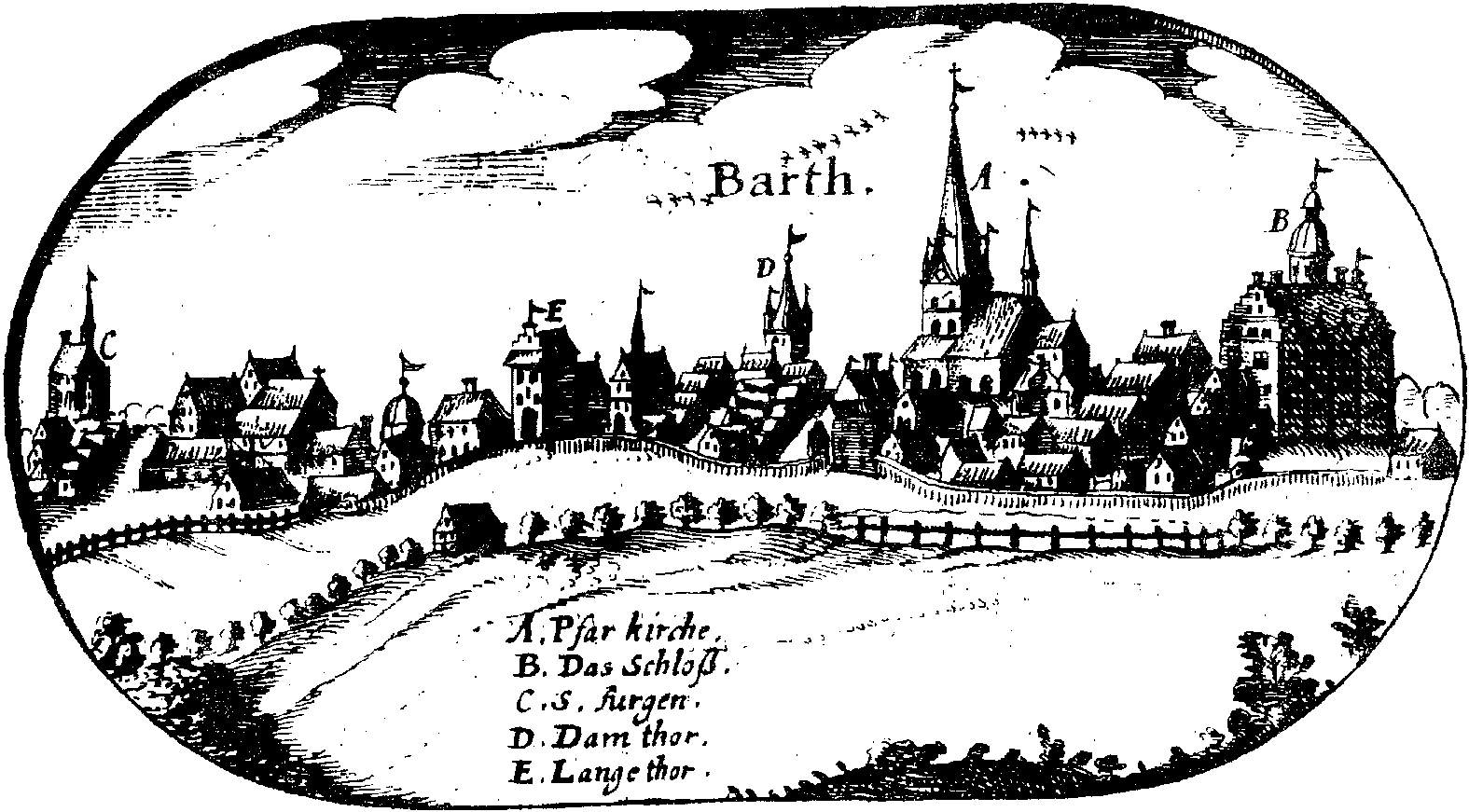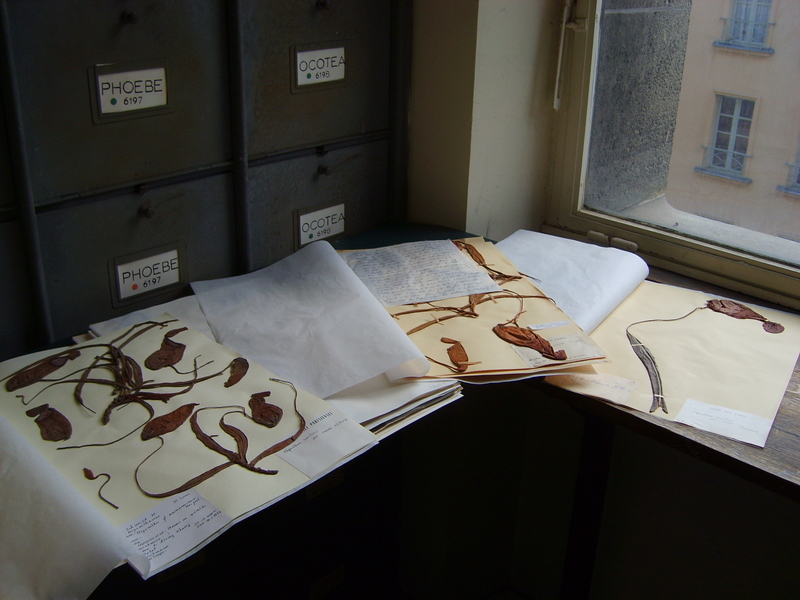|
Ferdinand Jühlke
Ferdinand Jühlke (1 September 1815 - 12 June 1893) was a Prussian (after 1871 German) horticulturist. He devoted much of his career to teaching and also wrote a number of highly influential books on gardens and garden design, though it is fair to add that his influence was greater in the Prussian north of Germany than in the south. Life Provenance and early years Johann Bernhard Ferdinand Jühlke, the third of his parents' three recorded sons together, was born on 1 September 1815 and baptised 16 days later, at Barth (Pomerania), in the extreme north of what would become Germany. Johann Martin Jühlke, his father, was a carpenter-joiner. The year of his birth was the year in which the entire province of Swedish Pomerania ceased to be Swedish and became part of Prussia, as part of the process whereby the nation-brokers at the Congress of Vienna confirmed the nation's recovery of "great power" status and the reversal of its near annihilation by the French Empire in 1806. ... [...More Info...] [...Related Items...] OR: [Wikipedia] [Google] [Baidu] |
Barth, Germany
Barth is a town in Mecklenburg-Vorpommern, Germany. It is situated at a lagoon (Bodden) of the Baltic Sea facing the Fischland-Darss-Zingst peninsula. Barth belongs to the district of Vorpommern-Rügen. It is close to the Western Pomerania Lagoon Area National Park. In 2011, it held a population of 8,706. History Barth dates back to the medieval German Ostsiedlung, before which the area was settled by Wends of the Liuticians or Rani tribe. Jaromar II, Danish prince of Rügen, granted the town Lübeck law in 1255. In the same document, he agreed to remove his burgh, ''Borgwall'' or ''Neue Burg'', then on the northwestern edge of the town's projected limits. Another Wendish burgh, ''Alte Burg'' near today's train station, was not used anymore. The German town was set up on empty space between the burghs. Not a member of the Hanseatic League, the town never grew to the importance and size of neighboring Hanseatic towns like Stralsund. The last prince of Rügen, Witzlaw III ... [...More Info...] [...Related Items...] OR: [Wikipedia] [Google] [Baidu] |
First French Empire
The First French Empire, officially the French Republic, then the French Empire (; Latin: ) after 1809, also known as Napoleonic France, was the empire ruled by Napoleon Bonaparte, who established French hegemony over much of continental Europe at the beginning of the 19th century. It lasted from 18 May 1804 to 11 April 1814 and again briefly from 20 March 1815 to 7 July 1815. Although France had already established a colonial empire overseas since the early 17th century, the French state had remained a kingdom under the Bourbons and a republic after the French Revolution. Historians refer to Napoleon's regime as the ''First Empire'' to distinguish it from the restorationist ''Second Empire'' (1852–1870) ruled by his nephew Napoleon III. The First French Empire is considered by some to be a " Republican empire." On 18 May 1804, Napoleon was granted the title Emperor of the French (', ) by the French and was crowned on 2 December 1804, signifying the end of the French ... [...More Info...] [...Related Items...] OR: [Wikipedia] [Google] [Baidu] |
German Confederation
The German Confederation (german: Deutscher Bund, ) was an association of 39 predominantly German-speaking sovereign states in Central Europe. It was created by the Congress of Vienna in 1815 as a replacement of the former Holy Roman Empire, which had been dissolved in 1806. The Confederation had only one organ, the Federal Convention (also Federal Assembly or Confederate Diet). The Convention consisted of the representatives of the member states. The most important issues had to be decided on unanimously. The Convention was presided over by the representative of Austria. This was a formality, however, the Confederation did not have a head of state, since it was not a state. The Confederation, on the one hand, was a strong alliance between its member states because federal law was superior to state law (the decisions of the Federal Convention were binding for the member states). Additionally, the Confederation had been established for eternity and was impossible to dissolve (l ... [...More Info...] [...Related Items...] OR: [Wikipedia] [Google] [Baidu] |
Military Service
Military service is service by an individual or group in an army or other militia, air forces, and naval forces, whether as a chosen job (volunteer) or as a result of an involuntary draft (conscription). Some nations (e.g., Mexico) require a specific amount of military service from every citizen, except for special cases, such as limitation determined by a military physical or religious belief. In the United States, a mental disorder does not necessarily disqualify a recruit so long as no treatment had been given within 36 months. Most countries that use conscription systems only conscript men; a few countries also conscript women. For example, Norway, Sweden, North Korea, Israel, and Eritrea conscript both men and women. However, only Norway and Sweden have a gender-neutral conscription system, where men and women are conscripted and serve on equal formal terms. Some nations with conscription systems do not enforce them. Nations which conscript for military service typically ... [...More Info...] [...Related Items...] OR: [Wikipedia] [Google] [Baidu] |
Otto Von Bismarck
Otto, Prince of Bismarck, Count of Bismarck-Schönhausen, Duke of Lauenburg (, ; 1 April 1815 – 30 July 1898), born Otto Eduard Leopold von Bismarck, was a conservative German statesman and diplomat. From his origins in the upper class of Junker landowners, Bismarck rose rapidly in Prussian politics, and from 1862 to 1890 he was the Minister President of Prussia, minister president and List of foreign ministers of Prussia, foreign minister of Prussia. Before his rise to the Executive (government), executive, he was the Prussian ambassador to Russian Empire, Russia and Second French Empire, France and served in both houses of the Landtag of Prussia, Prussian Parliament. He masterminded the unification of Germany in 1871 and served as the first Chancellor of Germany#Under the Emperor (1871–1918), Chancellor of the German Empire until 1890, in which capacity he dominated European affairs. He had served as the chancellor of the North German Confederation from 1867 to 1871, alon ... [...More Info...] [...Related Items...] OR: [Wikipedia] [Google] [Baidu] |
Rügen
Rügen (; la, Rugia, ) is Germany's largest island. It is located off the Pomeranian coast in the Baltic Sea and belongs to the state of Mecklenburg-Western Pomerania. The "gateway" to Rügen island is the Hanseatic city of Stralsund, where it is linked to the mainland by road and railway via the Rügen Bridge and Causeway, two routes crossing the two-kilometre-wide Strelasund, a sound of the Baltic Sea. Rügen has a maximum length of (from north to south), a maximum width of in the south and an area of . The coast is characterized by numerous sandy beaches, lagoons () and open bays (), as well as projecting peninsulas and headlands. In June 2011, UNESCO awarded the status of a World Heritage Site to the Jasmund National Park, famous for its vast stands of beeches and chalk cliffs like King's Chair, the main landmark of Rügen island. The island of Rügen is part of the district of Vorpommern-Rügen, with its county seat in Stralsund. The towns on Rügen are: Bergen, S ... [...More Info...] [...Related Items...] OR: [Wikipedia] [Google] [Baidu] |
New Western Pomerania
New Western Pomerania (german: Neuvorpommern or ''Neu-Vorpommern'') was that part of Western Pomerania that went to Prussia under the terms of the Congress of Vienna in 1815. The territory of New Western Pomerania corresponded to that area of earlier region of Swedish Pomerania that had been left after the Treaty of Stockholm in 1720; thus it covered Western Pomerania north of the Peene, including the island of Rügen. The name New Western Pomerania and Rügen (''Neuvorpommern und Rügen'') was also used, which emphasised the territory of Rügen. As early as 1720, the area of Swedish Pomerania that had been ceded to Prussia was called, by contrast, Old Western Pomerania (''Altvorpommern''). New Western Pomerania was part of the Prussian province of Pomerania and, from 1818, formed the government region of Stralsund, but for a time, retained a special legal status. For example, from the old councils (''Stände'') of New Western Pomerania, a new Regional Parliament for New Western ... [...More Info...] [...Related Items...] OR: [Wikipedia] [Google] [Baidu] |
Herbarium
A herbarium (plural: herbaria) is a collection of preserved plant specimens and associated data used for scientific study. The specimens may be whole plants or plant parts; these will usually be in dried form mounted on a sheet of paper (called ''exsiccatum'', plur. ''exsiccata'') but, depending upon the material, may also be stored in boxes or kept in alcohol or other preservative. The specimens in a herbarium are often used as reference material in describing plant taxa; some specimens may be types. The same term is often used in mycology to describe an equivalent collection of preserved fungi, otherwise known as a fungarium. A xylarium is a herbarium specialising in specimens of wood. The term hortorium (as in the Liberty Hyde Bailey Hortorium) has occasionally been applied to a herbarium specialising in preserving material of horticultural origin. History The making of herbaria is an ancient phenomenon, at least six centuries old, although the techniques have changed l ... [...More Info...] [...Related Items...] OR: [Wikipedia] [Google] [Baidu] |



